Australia to hold talks with PNG on Manus refugees
- Published
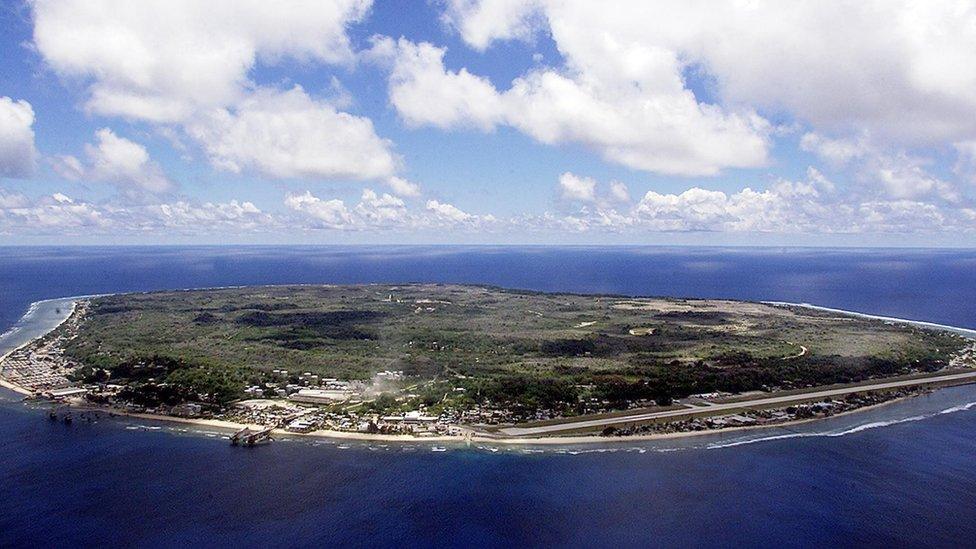
Australia says asylum seekers currently held on Manus Island could be moved to a facility on Nauru
Australia and Papua New Guinea will hold urgent talks next week over the fate of asylum seekers held at a detention centre on Manus Island.
The talks come after Papua New Guinea's Supreme Court ruled the facility unconstitutional, overturning a deal reached between the governments.
Australia sends asylum seekers there under its offshore processing policy.
Papua New Guinea has now said it will close the facility, but it is not clear when that could happen.
Manus Island was first opened in 2001, and along with Australia's other offshore processing centres, has played a central role in Australia's controversial asylum policy.
Papua New Guinea's high commissioner to Australia Charles Lepani said the detainees were now Australia's responsibility, but Australia has remained opposed to taking any of them.
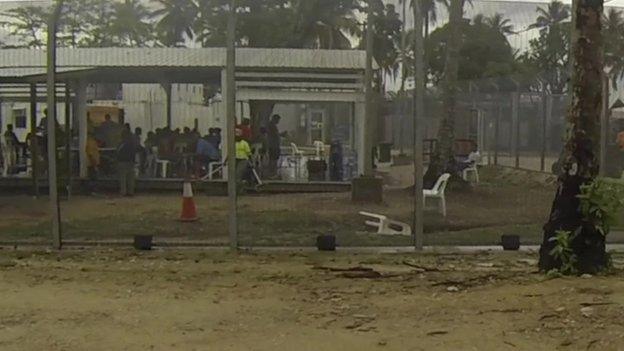
This image, taken by the BBC in June 2015, shows detainees held behind a fence on Manus Island
Immigration Minister Peter Dutton said on Thursday there was room for them at another detention centre on Nauru.
"There's capacity [on Nauru] but we're talking with the PNG government about what options are available in PNG and we'll continue those discussions with them," Mr Dutton said on Sky News.
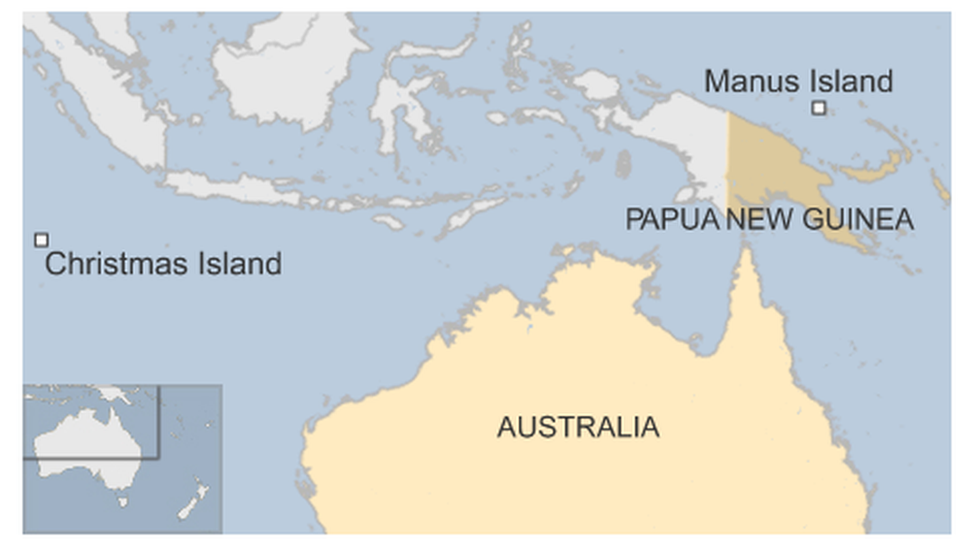
This comes after an Iranian asylum seeker held at the Australian-funded detention centre on Nauru set himself on fire on Wednesday.
His actions were a "political protest" according to the Nauruan government.
Mr Dutton said the 23-year old man was in a serious condition and was evacuated to Australia for treatment.
Nauru is a small Pacific Island nation about 3,000 km (1,800 miles) north-east of Australia.
It was previously administered by Australia but gained independence in 1968.

Manus Island: a controversial 'solution'
The camp first opened in 2001 under Australian Prime Minister John Howard.
It was formally closed in 2008, but reopened in 2012 when a spike in asylum seeker arrivals became a major political issue for the Labor government.
In 2013 Australia agreed to give Papua New Guinea A$400m ($309m; £212m) in aid in exchange for housing a camp and to resettle genuine refugees.
Deadly riots broke out in February 2014 when local residents entered the facility. In January 2015 some detainees barricaded themselves inside their compound and went on hunger strike.
Private security contractor Broadspectrum, formerly Transfield Services, currently runs the camp.
Australia's government says its refugee policy has led to a sharp drop in the number of migrant boats.
UN agencies and rights groups have criticised conditions at the camp and say Australia is shirking its responsibilities towards refugees and migrants.

Mr Dutton said that the man set himself on fire at a settlement outside the detention centre.
"He's in a very serious condition," Mr Dutton said.
"His outlook is not good at all."
He also confirmed that other asylum seekers held on the island had harmed themselves.
"What we've been very clear about is that if people come to Australia for medical assistance they'll be returning back to Nauru once that medical assistance has been provided.
"We have returned three people back to Nauru from Australia and they have returned because the medical assistance that they sought in Australia has been provided," Mr Dutton said.
Representatives from the refugee agency UNHCR were visiting Nauru when the incident occurred, he said.
An Iranian asylum seeker was last month fined for trying to kill himself during an attempt to move him and his daughter from the centre on Nauru.
- Published27 April 2016
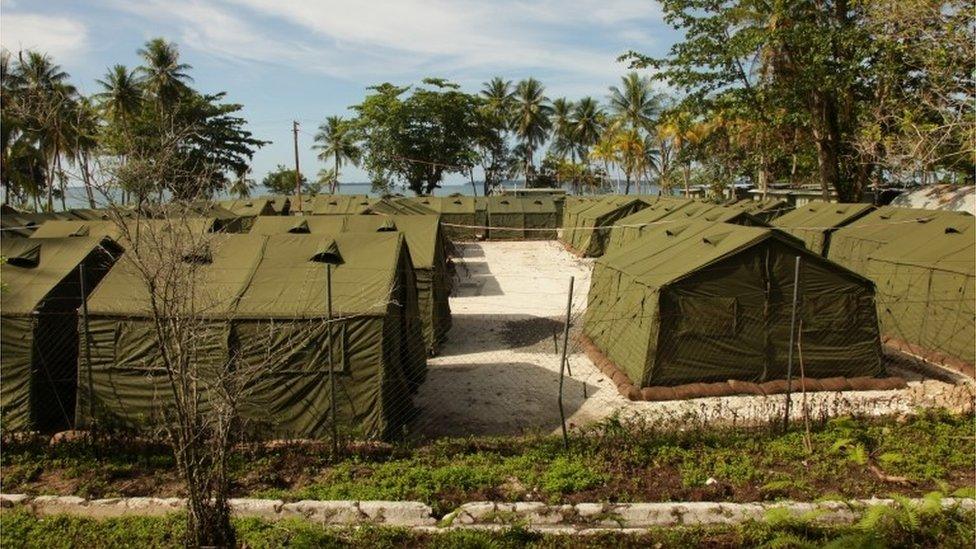
- Published26 April 2016
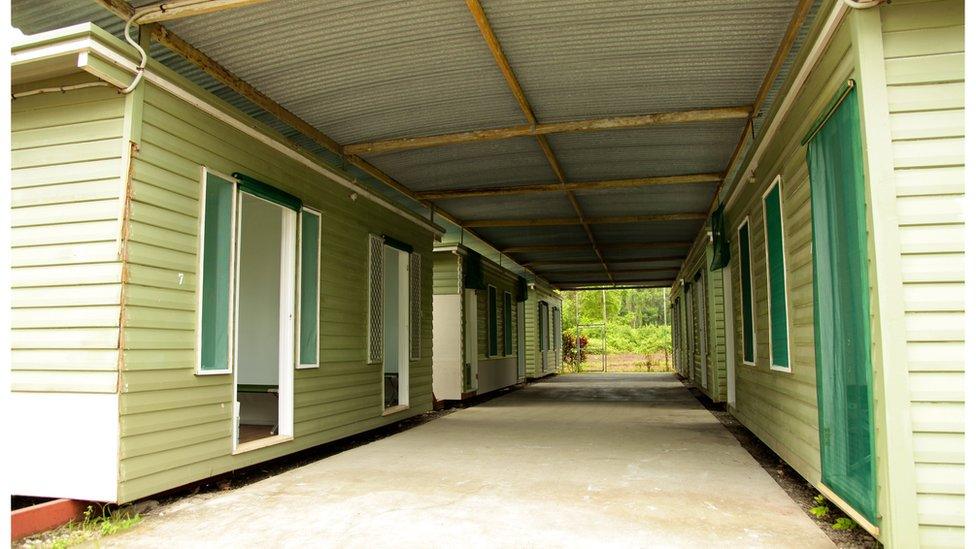
- Published15 April 2016
